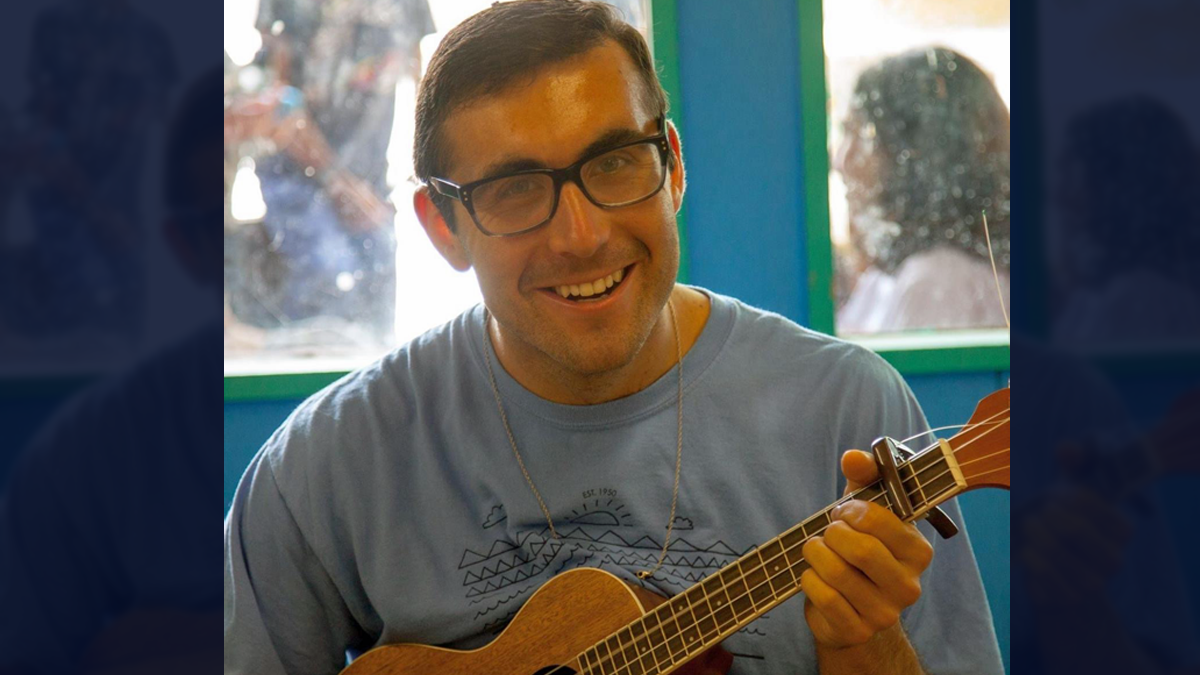Composers refresh ancient Jewish prayers with new music
Listen
Ari Sussman, former head of music and performing arts at Camp Ramah, a Jewish summer camp in the Poconos where he composed the music to Oseh Shalom. (Photo courtesy of Ari Sussman)
Ari Sussman grew up in a Jewish congregation in Elkins Park, attended a Jewish high school, and — every year — went to Jewish summer camp in the Poconos, where he eventually became music director.
One year he fell ill at camp and was bedridden. Unable to get out of his bunk for days, he decided to write a song.
“I couldn’t move, I could barely function,” Sussman remembered. “I pulled out my keyboard from under my bed, because I couldn’t fall asleep. I wanted to write a peaceful work. So why not write the music to the prayer, He Who Makes Peace?”
He composed music for Oseh Shalom or the Prayer for Peace. Oseh Shalom is one of the most popular Jewish prayers, one that has been put to music many times before.
The music spilled out of Sussman all at once, while he convalesced in the camp bunk.
“Oseh Shalom to this day is the most organic piece I’ve ever written,” he said. “It just felt so natural to write. The biggest reason is that there is no mention of God in the text. It just says the ‘One’ that makes peace. I like to see that universality to it.”
Sussman, 23, is now studying composition at the New England Conservatory in Boston. His is one of the 20 compositions selected — out of 1,500 submitted — to be performed at the sixth annual Shalshelet festival, an international showcase of new liturgical music.
The festival on Sunday is a biennial event highlighting undersung composers. It was founded 13 years ago by Ramon Tasat, a cantor in Silver Spring, Maryland, who was impressed by the quality of music coming from unknown or amateur composers. He created Shalshelet to promote new work.
“We love to hear what younger composers have to say about ancient prayers,” he said. Tasat and a panel of judges consider all kinds of music, from the more traditional liturgical forms of choral and folk to string arrangements — and even rap.
“We’ve had electronic music. We have styles we members of the jury feel more uncomfortable with,” he said. “It’s not our language, but we recognize it’s the language of a new generation.”
While Shalshelet considers a wide range of music, it holds all submissions to a certain standard; it seeks music that supports its own text and vice versa — the selected words must also bring out the best in the music.
“I’m sure it happens to you — it happens to all of us. Sometimes there is certain poetry that we wouldn’t read alone,” said Tasat. “But when it is part of a song, all of a sudden we just love this text and we want to go back and read it.”
The concert will be at the Main Line Reform Temple in Wynnewood, with a series of workshops beforehand. After the festival, Shalshelet will make all of the music available in a published anthology of sheet music.
WHYY is your source for fact-based, in-depth journalism and information. As a nonprofit organization, we rely on financial support from readers like you. Please give today.





